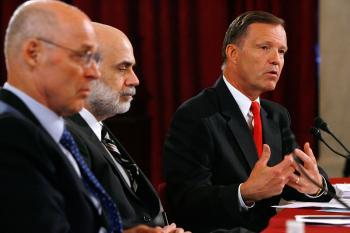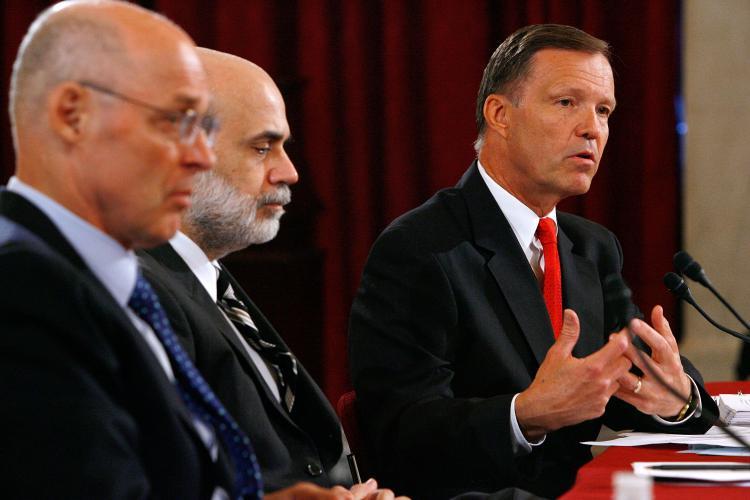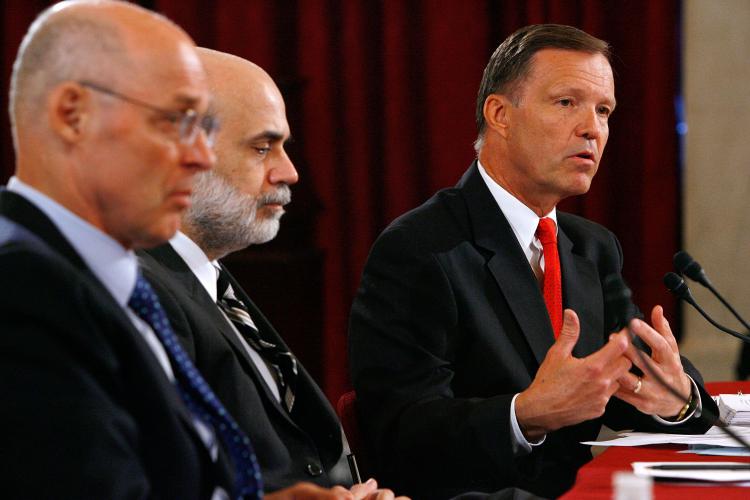WASHINGTON–Fitch Ratings, Ltd., Moody’s Investor Services Inc., and Standard & Poor’s (S&P) are trusted names to investors, providing objective credit ratings to companies and their security issuances. Credit ratings often determine the ability of companies to borrow money, and the interest rates attached to those debts.
However, the U.S. Securities and Exchange Commission (SEC) recently declared that the agencies were biased and failed in their fiduciary duty to those relying on their analysis to make educated investment decisions.
“We uncovered serious shortcomings at these firms, including a lack of disclosure to investors and the public, a lack of policies and procedures to manage the rating process, and insufficient attention to conflicts of interest,” said Christopher Cox, SEC Chairman, in a July press release.
The SEC unveiled weaknesses found at the firms—without pointing fingers at any individual agency—in a “Summary Report of the Issues Identified in the Commission Staff’s Examinations of Select Credit Rating Agencies” released this month.
Perhaps in an effort to dampen market reactions, the SEC used phrases such as “robust and struggling with the growth,” instead of negligence, laxity, and flawed to describe activities at the ratings firms.
“The surveillance processes used by the rating agencies appear to have been less robust than the processes used for initial ratings,” the SEC said.
Conflict of Interest?
Credit agencies neglected their duty to the public “partly because they have a conflict of interest. They earn revenues when they rate structured securitizations, creating incentives for rating agencies to be easy graders. In 2005, more than 40 percent of Moody’s ratings revenue came from rating securitized debt,” according to a July Knowledge @ Wharton report.
Conflict of interest arose when rating agency staff, involved in the rating process, took part in price negotiations or internal price setting discussions. Internal e-mails published by the SEC clearly showed that earnings affected guidelines used to assign ratings.
“I am trying to ascertain whether we can determine at this point if we will suffer any loss of business because of our decision,” wrote one senior analyst in an internal e-mail disclosed by the SEC. Excerpting from other e-mails, analysts wrote that they had to revisit analytical methods “because of the ongoing threat of losing deals.”
Harsh Findings
The SEC discovered that one rating agency’s auditing procedure was no more than “a one-page checklist [that was] limited in scope” and failed to provide any discussion of shortcomings by management.
Rating agency personnel ignored established document retention policies, disregarded rating committee directives, and did not test derivative models before used by the analysts, the SEC found.
As the securities market became more complex and sophisticated, and the volume increased to unprecedented heights, credit agencies didn’t hire enough analysts, and the remaining analysts took shortcuts and prescribed to a production line mentality, according to regulators. Cutting corners became the norm.
According to a senior analyst’s e-mail turned over to the SEC, many analysts knew that certain ratings were essentially worthless.
As the CDO (collateralized debt obligation) market ballooned, one analyst wrote, “Let’s hope we are all wealthy and retired by the time this house of cards falter.”
Today, the CDO market is illiquid and many Wall Street banks suffered billions in losses from their CDO inventories.
Further Regulation
“Rating agencies say they shouldn’t be held accountable for their opinions because they are nothing more than journalist engaged in free speech,” claimed David Einhorn, CEO of Greenlight Capital, during a 2007 speech at a Helbrunn Center for Graham & Dodd Investing.
The SEC was granted the authority to regulate credit agencies under the Credit Rating Agency Reform Act of 2006. But this month, the SEC proposed regulations that would remove its “seal of approval” from credit agency ratings, suggesting that investors perform their own independent analysis and due diligence.
Under an agreement with New York Attorney General Andrew Cuomo, S&P, Moody’s and Fitch will overhaul their fee collection structure, rating procedures and methodologies.
Cuomo claimed in a press release that the agreement would make the rating agencies more independent, ascertain that relevant loan data will be used in the analysis and heighten transparency.
Rating agencies also advised the SEC that they are revisiting their ratings methodologies and will make necessary changes. Over the next several months, the SEC has also promised to keep a more watchful eye over the agencies.
Some industry watchdogs haven’t yet bought into the SEC-recommended fixes and see it more as a slap on the wrist than anything permanent.
“It’s piecemeal, unsystemic and probably won’t do much to fix the problem,” said Dan Ackman in a recent article on BNEW Industries.






